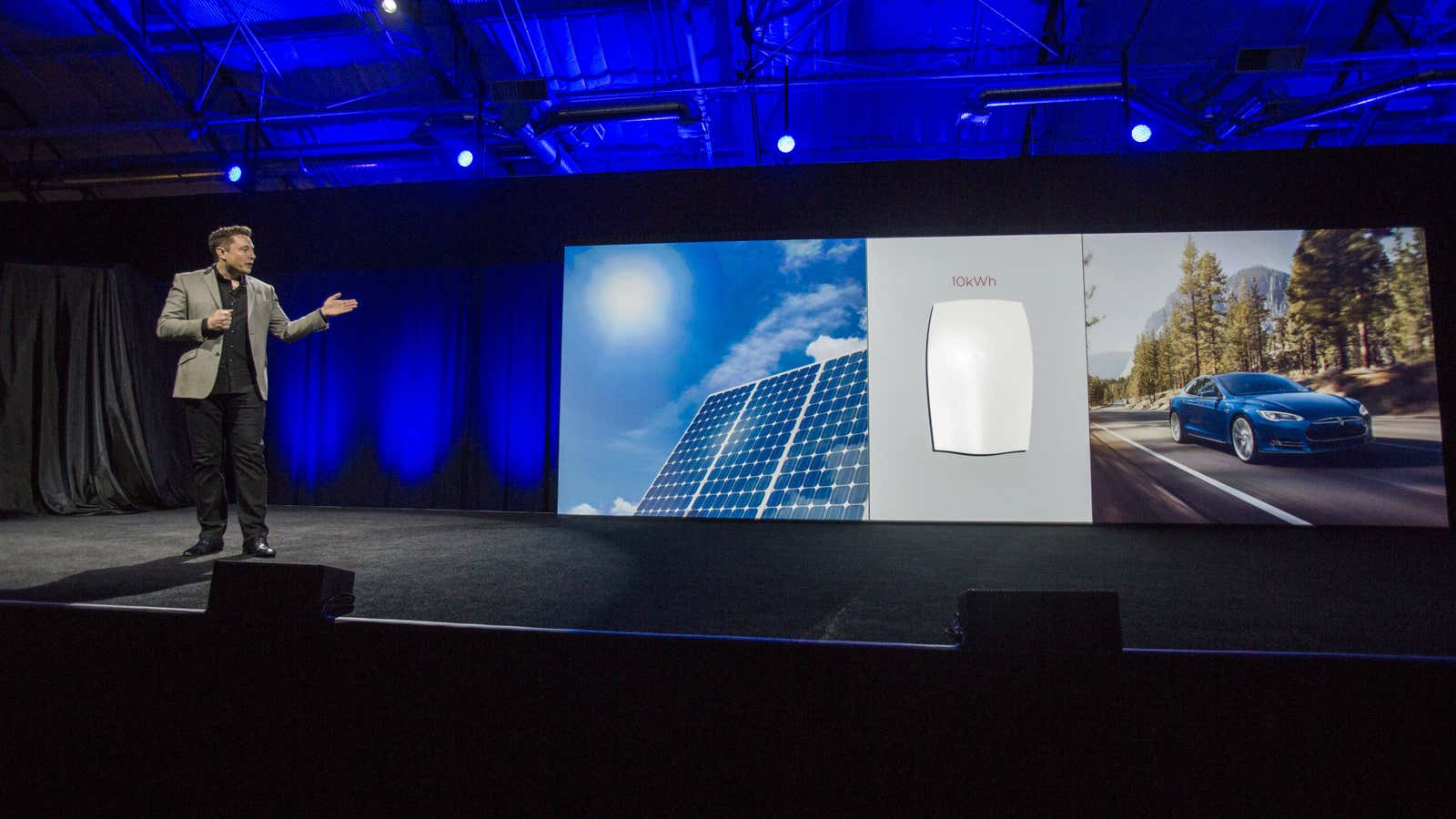Tesla’s CEO, Elon Musk, is suffering from an affliction of which Thomas Edison complained more than a century ago: inventors and promoters lining up at his door, each with lofty claims for a new battery.
Edison’s frustration boiled over in a piece he wrote in 1883, bemoaning the propensity of such people to exaggerate:
The storage battery is, in my opinion, a catchpenny, a sensation, a mechanism for swindling the public by stock companies. The storage battery is one of those peculiar things which appeals to the imagination, and no more perfect thing could be desired by stock swindlers than that very selfsame thing. … Just as soon as a man gets working on the secondary battery, it brings out his latent capacity for lying.
Roll forward 132 years. Musk says he hears word almost every week of a breakthrough in battery chemistry. He pays attention, especially when the inventor sends him a sample. But so far, like Edison, he has been disappointed at the results. Battery inventors, Musk laments, “are big on promises and short on delivery.”
Musk made the remarks in a May 6 conference call with stock analysts, whose main interest was the line of stationary home and business batteries that he announced a week earlier. Making a better lithium-ion battery—meaning more energetic and cheaper—is a preoccupation of his because the cost probably must fall by two-thirds or more if his products are to penetrate the mass market. The battery pack is by far the most expensive component in the electric Tesla S car, for instance.
But a significantly better battery remains an elusive prize. Neither scientists nor engineers have cracked the puzzle of how to squeeze more electrons safely into a small space in a way that allows for their quick extraction when desired, while keeping them working at peak performance, cycle after cycle. And how to do all that at a much cheaper price.
As Musk said, inventors at universities, government-run labs and private companies regularly announce fresh ideas. But they tend to leave out important details, he said. Sometimes they fail to say their battery can charge and discharge just 50 times before it fails, and not the minimum of 1,000 such cycles necessary in an electric car. Or they talk only about how fast the electrons can be extracted (the power that allows a car to accelerate quickly), and not how far the battery will take a car (its pool of durable energy).
“We’ll love it if someone comes up with a better chemistry,” he said. “But it’s worth noting that no one has sent us a cell that is better than what we currently use.”
So Musk is becoming more flexible
On the call, Musk departed from his usual glib vagueness to reveal more about his battery thinking than he has in the past.
He opened up, for example, about the competing chemistries at play in the lithium-ion industry. Musk has always been a robust defender of a chemistry called nickel-cobalt-aluminum (NCA), which he buys from Panasonic and has installed in all his electric cars. On an energy to mass basis, he says, NCA has the best performance of any of its rivals.
But Musk divulged that his $3,000 home battery will contain not NCA, but a competitor chemistry that he has previously scorned—NMC, which relies on manganese rather than aluminum. He suggested that his shift is because NMC can better undergo a daily regime of charging and discharging.
Musk unsurprisingly said it was no big deal, which may have been why the stock analysts overlooked the disclosure. “We just want to use the best chemistry,” he said. But the news is important because it shows a new public flexibility on his part.
What he did not disclose is a major Tesla hiring coup
With the stakes so high, there is a fierce hunt for the best battery talent, and Apple has been accused of poaching scientists from its rivals. Asked in the call about any losses to Apple, Musk said it’s not clear which company—Tesla or Apple—is hiring away more of the other’s researchers.
But what he did not reveal on the call is a serious coup—Tesla has concluded a research contract with Jeff Dahn, a leading battery researcher at Dalhousie University who is one of NMC’s two main inventors. For decades, Dahn’s patents have gone exclusively to 3M, including his NMC work. His new deal with Tesla begins next year, a person with knowledge of the deal tells Quartz.
Both Dahn and Tesla declined to comment for this story. But one significance of the Dahn hire is his alignment on a key issue—he, like Musk and Edison, is outspoken in bemoaning the field’s propensity for exaggeration.
